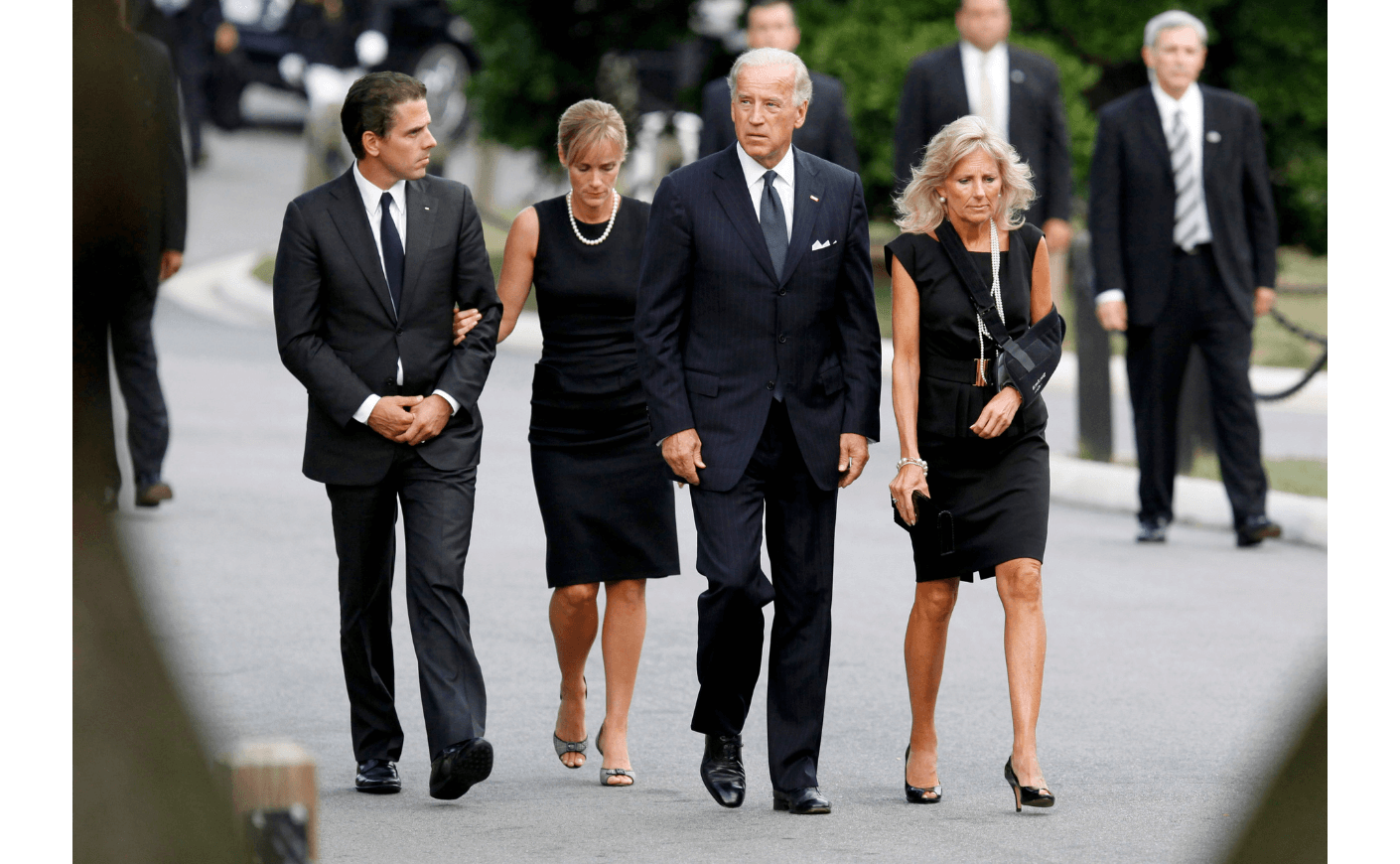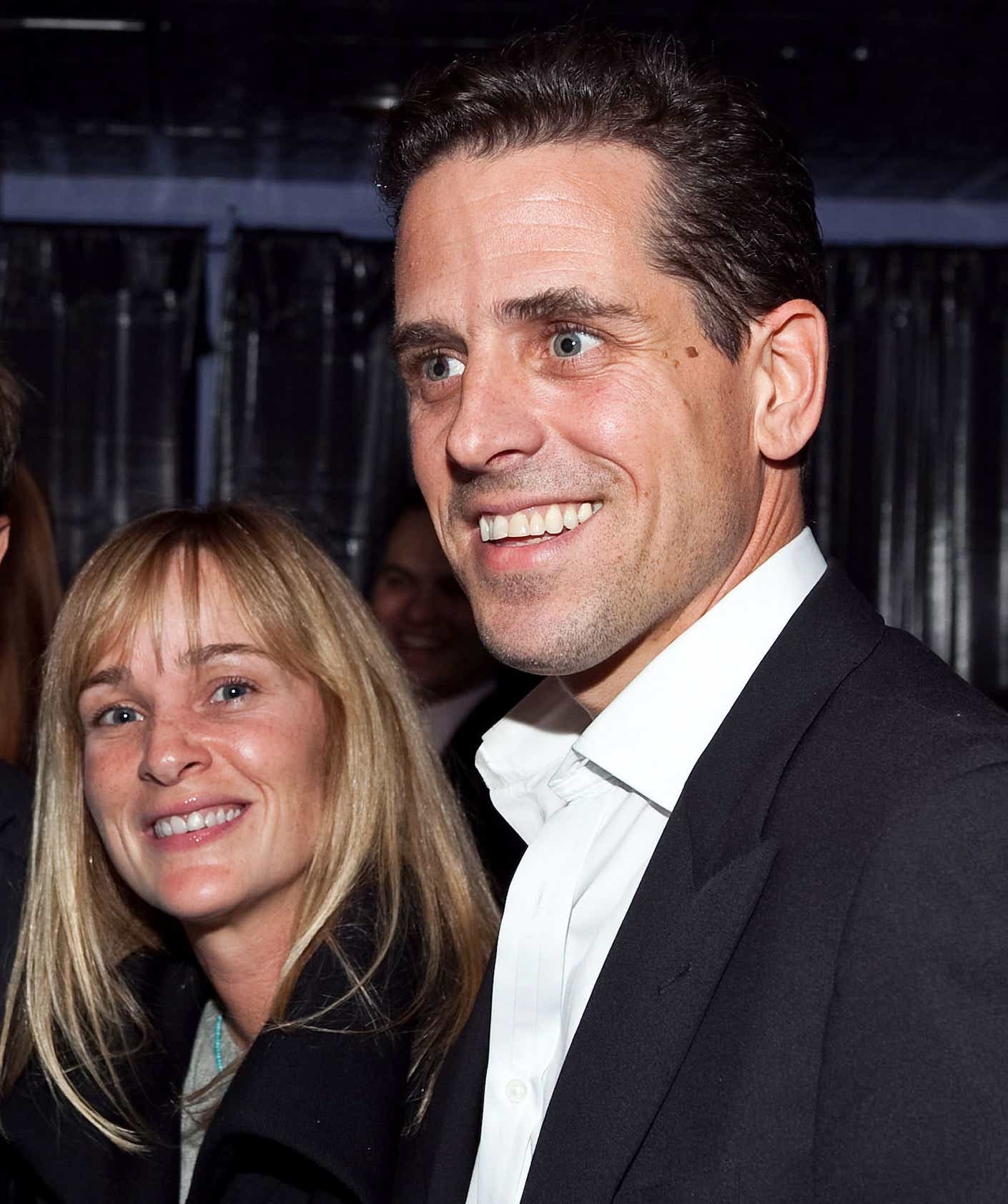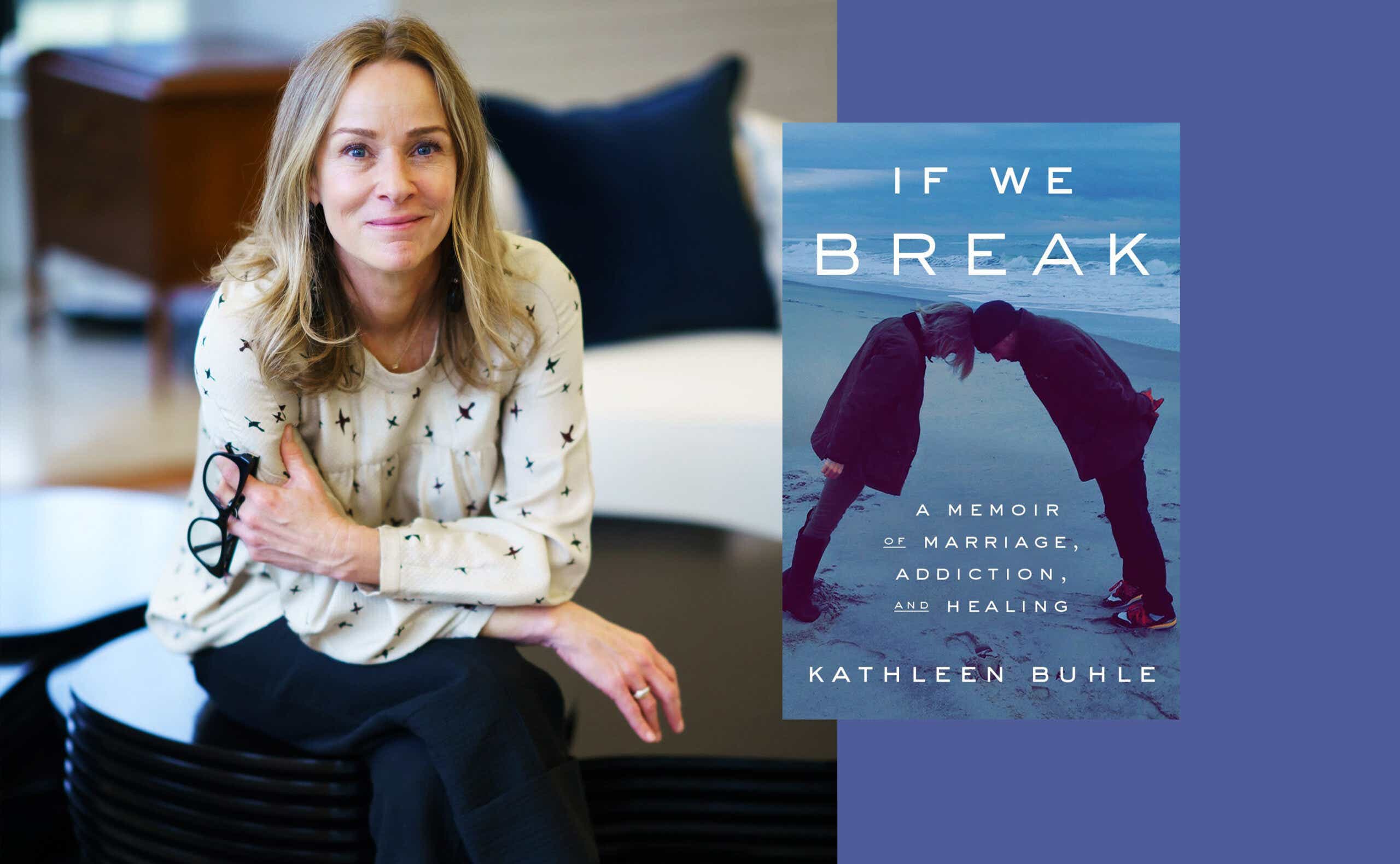Kathleen Buhle is in a season of reinvention. After her 24-year-long marriage to Hunter Biden unraveled and ended in divorce in 2017, Buhle (formerly Biden) is coming out on the other side with a renewed sense of self. She’s no longer just President Biden’s former daughter-in-law, or the ex-wife of the man at the center of mounting controversy (including a federal investigation into his international business dealings). She’s the proud mother of three daughters (Naomi, Finnegan, and Maisy), a colon cancer survivor, and happily divorced. And for the first time, she's sharing what really happened inside her marriage to Hunter Biden, in her new memoir If We Break: A Memoir of Marriage, Addiction, and Healing.
As she read her own finished manuscript, Buhle made an eye-opening discovery. “I realized how scared I was: A 49-year-old college-educated woman with friends and a strong family, but who didn’t think she could make it on her own. I felt so bad for her,” says Buhle. “I had to forgive myself for not believing in myself. I believe in myself and I’m proud of myself now. But I’m in my 50s, so that took a long time.”
Buhle says she wants her adult daughters to learn from her mistakes. “I wish I believed in myself when I was younger, and that’s what I want my girls to do. I want them to believe in themselves and love themselves. Flaws and all. I want us all to feel that way.”
Buhle revealed to us what it was like dealing with her ex's substance-abuse issues, the important lessons marriage taught her, and why she lived under a "blanket of denial" for so many years.
KCM: How did writing your memoir help you reclaim power over your life?
Kathleen Buhle: I think being honest with yourself and sitting in a really true place is very powerful. Some of the things I wrote about, like the idea that I gave up all financial control of my life, were hard to acknowledge. I wrote about how I desperately wanted to help my husband stop drinking in his recovery, but I didn't listen to people who told me I couldn't force him into recovery. It was really in writing that out that I realized how much I wasn't helping him, and how much I wasn't helping myself. Understanding those truths allowed me to move on.
Looking back, do you wish you kept better track of your family’s finances?
I very much do and I hope that's a lesson that other people are able to take away from the book, too. Whether or not you're contributing to your household's finances, it's your responsibility to understand them. A relationship that has that shared responsibility is a stronger one. I had to admit that putting all of that on my husband wasn't fair to him and it wasn't good for me.
You wrote about how difficult it was for you to bring up issues of infidelity and substance abuse to Hunter as they were happening. What made that so hard?
I sat with that for a long time because that was one of the questions that my writing coach asked me: “Why didn't you say something?” And the title of the book, If We Break, has many meanings for me, but one of them is that I didn't want to admit that there were cracks. And if you don't acknowledge them, then you can pretend as if everything’s OK. I lived under a blanket of denial.
Was there a specific moment that allowed you to become more honest with yourself about your relationship?
I was being a hyper-strict parent when things felt totally untethered, and my life felt like it was going in so many different directions that I couldn't control. And so I parented with a death grip and my mantra was, “We will not break.” There’s a part in the book when Maisy came to me as I was yelling at Finnegan, and said, “Mom, what are you doing?” And I said, “We will not break,” and she responded, “It's OK if we break a little.” It was one of those eye-opening moments that brought me to a place of greater honesty.
It was like, What am I doing? Of course, it's OK if we break a little. Why am I holding you to these crazy standards? Life’s really hard and we're going to make mistakes. I think a great part of that story is the capacity we have to continue changing and growing if we're open to it.
What advice do you have for other women who are dealing with partners who have substance abuse issues?
It's very hard to hear when you're in it and when you love and live with your addict. But I think the most important thing you can do is love them, even though you cannot control them. And that's a hard lesson to learn.
What was the greatest lesson you learned from being married to Hunter?

I joke a lot that I had an emotional growth spurt in my 40s. This ability to continue to grow and change throughout life is a real comfort to me, especially when I look at my daughters. I think the greatest piece that I learned is that I could stand on my own, and that was incredibly empowering. It took a long time to learn that I was more than just my husband's wife, and I think many women whose identity is tied almost entirely to their husband can relate to that.
Does reading about Hunter in recent headlines still affect you and your family?
I try not to see it. It’s mostly in the tabloids, which I try to avoid, but it just makes me sad for my daughters.
What advice would you give your daughters about marriage?
Well, my daughter Naomi is getting married, and it’s very exciting. And the advice I've given her is to make sure that it's a relationship built on mutual respect and to keep the playing field as equal as possible. And she's doing it. She’s a strong, independent, young woman.
Would you ever get married again?
I'm not necessarily looking to get married, but I'm open to it. Dating in your 50s is just a whole other thing. I’m as equally curious about women who had a family and were married and now are living independently as I am about women who have found love again. But I’m really happy and I’m very content with my life. I love my cute little townhouse. My fridge has everything that I want in it. I can go to bed at eight and wake up at five. We'll see.

What is your relationship with Hunter like today?
We come together in a shared love of our kids. Hunter and I talk, and I had him, his wife, and his baby over for Naomi's birthday. We'll be together to celebrate at her wedding. But he lives on the West Coast and I'm on the East Coast. Our daughters are young adults. We're both just doing our best.
What's next for you?
I’m in the process of starting a nonprofit women's club in Washington, D.C., aimed at women north of age 50, and built on the premise that when women come together, the opportunity for growth is expanded.
I wanted to build a place that allows women to come together, because when I was going through the most difficult time in my life, my community of girlfriends lifted me up and pushed me forward. At this stage in my life, I value those female friendships as much as I value any other relationship in my life.









